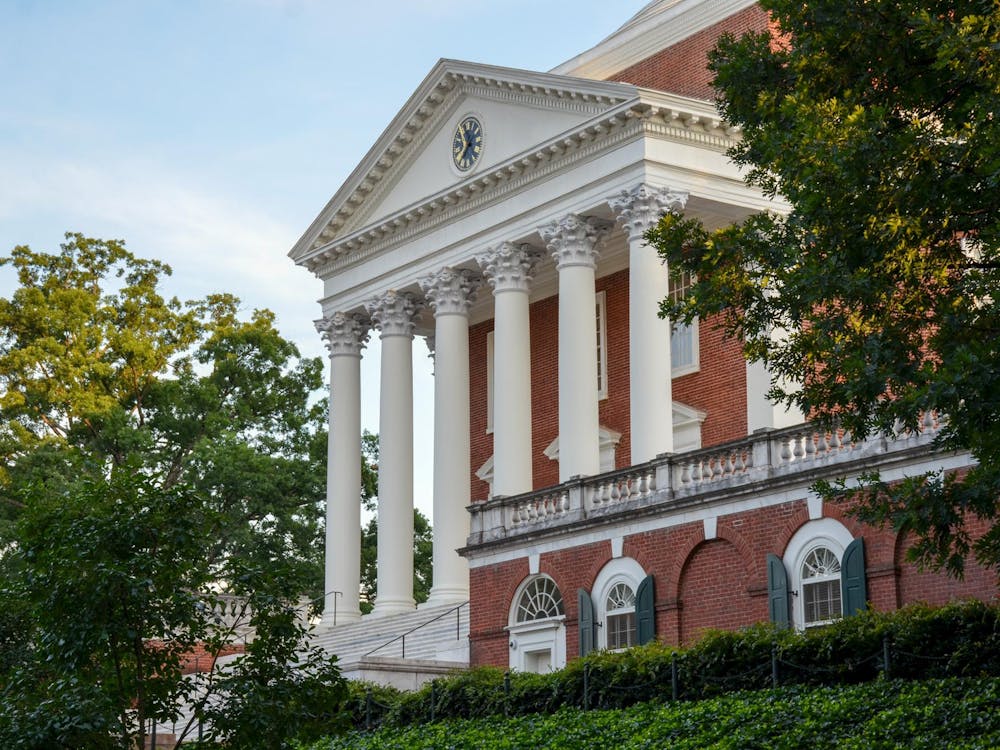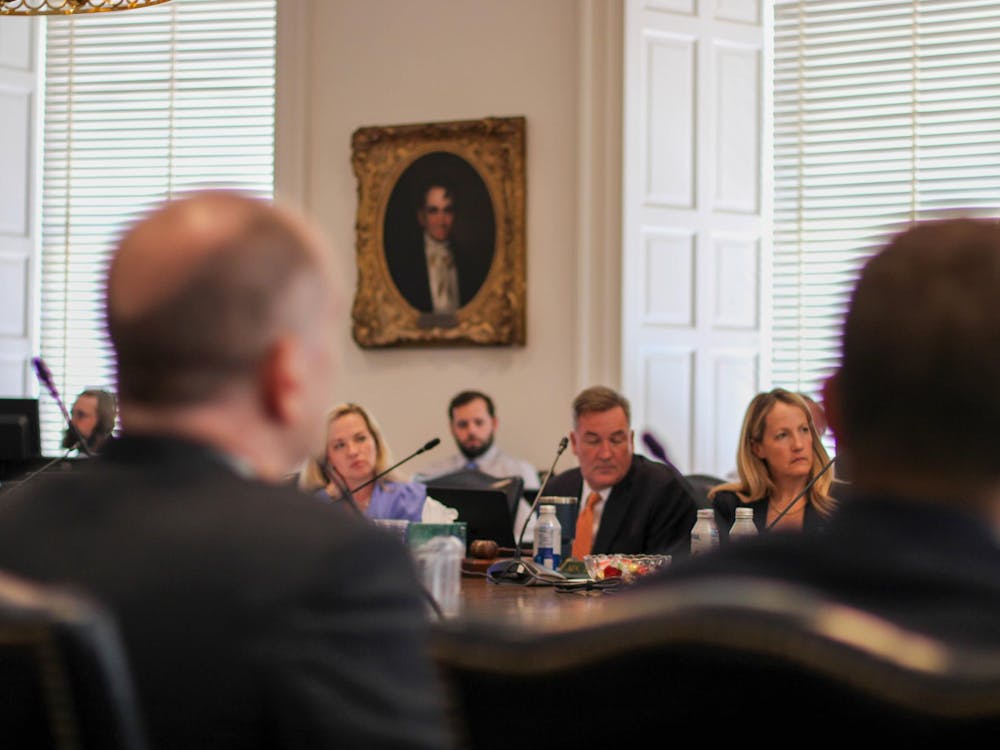Donuts outnumbered people last February in Monroe Hall when the University Board of Elections announced student election results. Perhaps democracy does not lend itself well to ceremony: the event was functional to the point of blandness. The presenter, prizing speed over clarity, clicked through a blurred rush of PowerPoint slides. She ended abruptly, leaving hollow chatter to fill a mostly empty room as the few candidates and fewer students who attended filed out.
This year students received no in-person announcement. The UBE had planned to share election results 4 p.m. Friday in Newcomb Theater. At 3:23 p.m. UBE chair Jessica Hassanzadeh, a fourth-year College student, emailed candidates (but not the student body) to call off the event. The board canceled the announcement with such little notice — in terms of both time and informational scope — that we wonder how many students found themselves loitering in Newcomb’s basement, staring at the theater’s closed doors. A post on uvavote.com, the UBE’s website, attributed the delay to voter turnout so high it had slowed the “tallying process.” We learned later that voter turnout was 40.54 percent: about eight points higher than last year, but hardly an excess of democratic exuberance.
The UBE published results online Saturday at noon. In its Saturday post, the elections board, presumably without irony, commended the University’s Information Technology Services department for its “professionalism and diligence during the entire voting process.”
We do not mean to malign ITS. It is difficult to ascribe fault because the UBE has not shared precisely what went wrong with its voting application — which is a problem in itself, as the board owes the student body the same level of transparency it demands from candidates. According to uvavote.com, the application, like the UBE itself, struggled to fulfill its only task. The computer system buckled under the strain of thousands of votes. The UBE’s instant run-off system, which requires calculating multiple votes per race, exacerbated the problem, Assistant Dean of Students Mike Citro said in an email.
Citro said the board intends to talk with its ITS colleagues Monday to “further explore what resulted in the delay in processing election results.”
Friday, however, is not the first time the UBE has suffered from technological shortcomings. A glitch in 2009 blocked voters from selecting multiple options in a referendum. The UBE that year took responsibility for the problem by directing students to cast votes for the referendum on Student Council’s website.
The next year, technology troubles struck again. The University in March 2009 had switched its information management system from ISIS to SIS, and the transition threw a wrench in the UBE’s voting system come February 2010, almost a full year later. The board lost about 80 student votes and temporarily closed the polls.
Last year the UBE suffered another glitch in online voting, which forced the board to extend the voting period by nearly a day.
The UBE’s apparent indifference toward its pattern of technological malfunction is troubling given impending undergraduate enrollment growth and a possible uptick in student voter turnout. The board has yet to offer a satisfying explanation for why this year’s delay occurred. Was 40 percent turnout simply too high to plan for? Does the board rely on faulty information-processing software? Does it not receive adequate support from ITS?
Information technology is geared toward eliminating human error: having a computer count votes is a safeguard against mistakes that could arise from tallying votes by hand. The recent delay reminds us, however, that the UBE’s digital infrastructure has flaws of its own that are more opaque than the errors it seeks to prevent.






